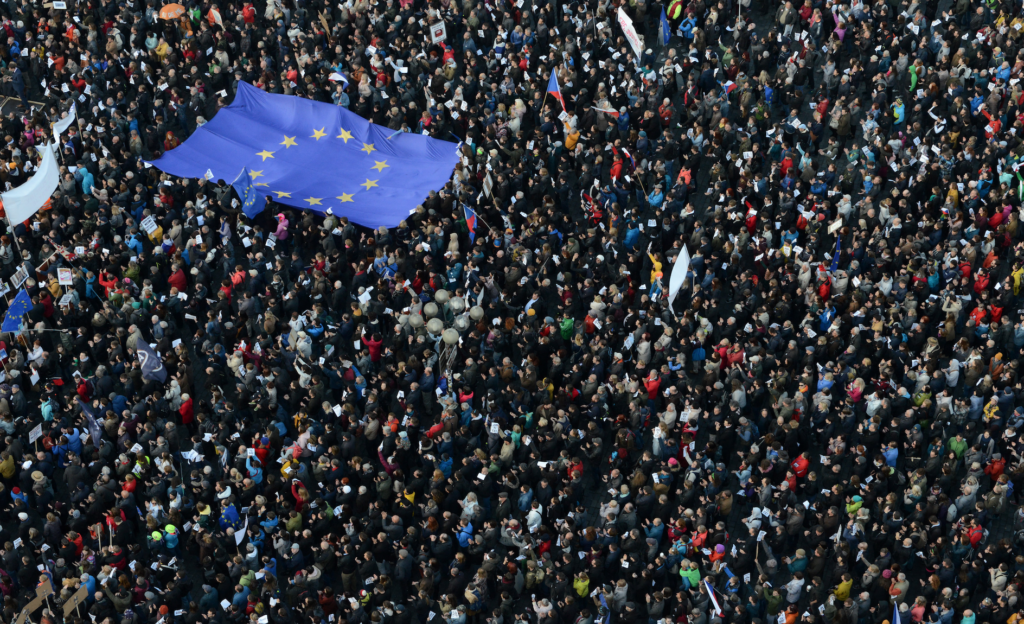When the Conference on the Future of Europe began its work last year, hope abounded for the potential for a transformed EU based on a conversation between citizens and national and European parliamentarians.
From the beginning, and despite concerns about the lack of democracy in its organisation, the Left saw the Conference as one of the ways to offer citizens an opportunity to break from European neoliberal policies, shape responses to the challenges of the future, grasp the opportunities of the 21st century, and work towards a Europe for people and planet.
We came with concrete proposals, based on civil society demands, insisting first on the need for radical Treaty change. Europe must stop promoting competition between people and put social progress, climate action, and democracy on an equal footing with economic interests in the EU.
One year on, despite opposition from the usual suspects, those much-needed changes to Europe’s institutional make-up are still within reach as the best way to deliver an EU at the service of its citizens.
The debates over the last year saw citizens tackle obsolete neoliberal doctrine, by demanding real democratic participation and breaking down the walls between the European institutions and the outside world.
We heard workers, youth, and the marginalised throughout the continent putting forward a clear demand for change; an end to tax dodging, measures to finally achieve gender equality and proper protection for the rule of law in Europe. Citizens demanded guaranteed fundamental rights, a humane migration policy and controls on corporate efforts to capture policy making.
The challenges of climate change and biodiversity loss were present throughout the debates and calls for them to be tackled alongside rising social and economic inequalities were loud and clear.
In the context of Putin’s devastating war on Ukraine, citizens demanded a foreign and security policy that could deliver peace, enhance the UN’s multilateral framework, and instill the principle of fair cooperation with the rest of the world.
The 49 recommendations and 325 proposals now on the agenda thanks to a year’s work by citizens certainly do have transformative potential and echo many proposals for Treaty change the Left has made for years alongside NGOs.
We need to enshrine social justice and respect for the planet and its limitations as fundamental values of the EU. Repealing and replacing the EU Economic Governance Framework, the European Semester as well as the Stability and Growth Pact is essential to achieve the radical economic change that citizens demand.
We must introduce a social progress clause in the Treaties, democratise European institutions through the right of initiative of the European Parliament and the political control of the European Central Bank, safeguard common goods and public services from free-market competition, and change free-trade logic towards fair and solidarity-based economic cooperation.
What’s currently lacking and has been lacking since the beginning of the Conference is the political courage to build on citizens’ demands. The all-too-familiar dinosaurs that stalk Brussels’ corridors of power always saw the Conference - “COFOE” to give it its efficiently alienating EU acronym - as a mere communications operation, a top-down talking shop to show “we listen”.
In that world-view, a process such as this ultimately puts the public interest “in its place”, rather than at the top of the agenda where it belongs.
We have seen once-sacred dogmas collapse in recent times. The pandemic showed up austerity, free trade and market law as the disasters they always were, offering Europe the perfect opportunity to build a new framework for economic governance beyond monetary policy straitjackets.
Those who want a continuation of “business as usual” are the very people putting the whole project they claim to defend at risk, widening the divide between the European institutions and citizens. The need for popular participation has been demonstrated, and the calls for radical change have been heard.
Now we must act on them with a convention leading to treaty change. That’s what the European Parliament must demand this week. That’s how Europe can offer hope, present courageous solutions to the daunting but surmountable challenges of our times, and turn the page on the failures of the past.

